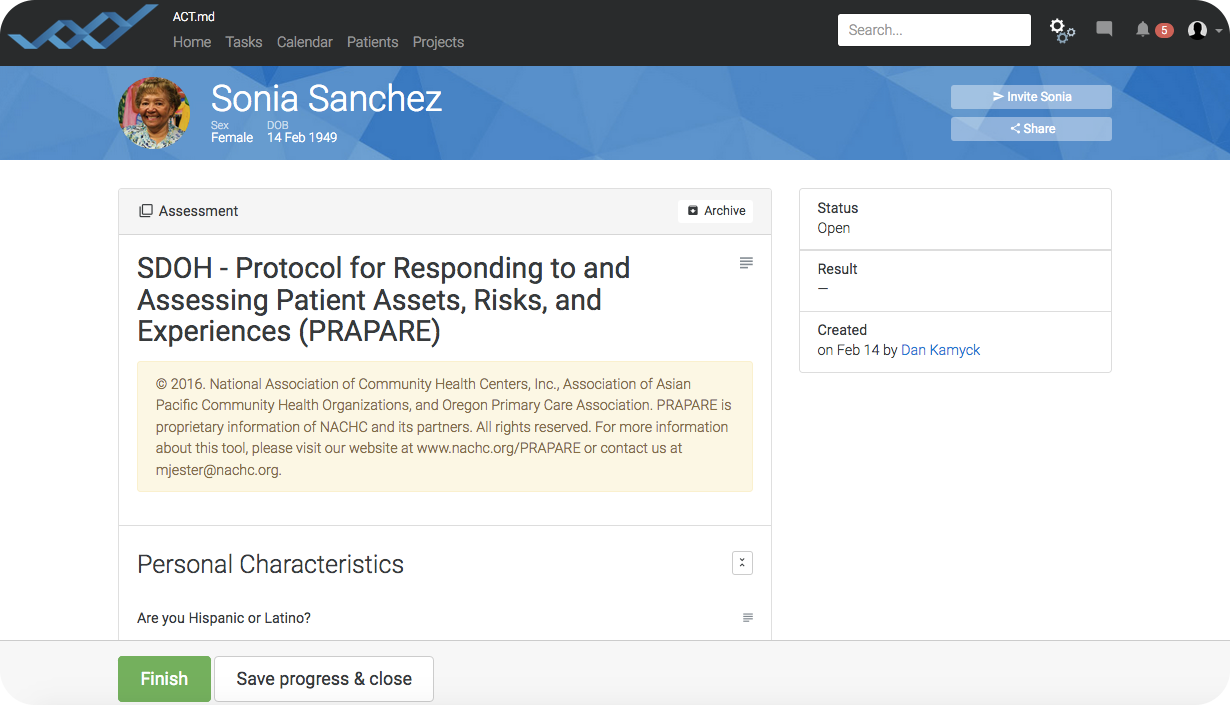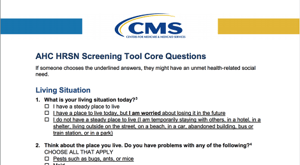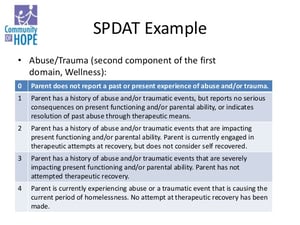There is a growing emphasis on the importance of social determinants of health. As it plays an important role in proper care coordination, identifying and addressing SDOH helps healthcare providers to better help patients live healthy lives.
Screening tools are beneficial because they allow a care team to identify, assess, and take action to address social determinants of health in patient populations. The ability to quickly and efficiently screen patients for health-related social needs has been facilitated with new screening tools and assessments. These screening tools are designed to help care providers identify patients’ needs that can be addressed with help from social services and community-based organizations. The social domains that assessments and screening tools look to address include:
- Housing insecurity and experiences with homelessness
- Food insecurity and nutritional needs
- Interpersonal violence
- Utilities, and the need for assistance to pay for electricity, water, and other basic needs
- Transportation, especially non-emergency medical transportation
- Legal needs, including support for immigrants and refugees
Exploring widely-used SDOH screening tools
- PRAPARE, or Protocol for Responding to and Assessing Patient Assets, Risks, and Experiences
- AHC-HRSN, or the Accountable Health Communities Health-Related Social Needs Screening
- SPDAT, or Service Prioritization Decision Assistance Tool
PRAPARE

PRAPARE Assessment in ACT.md
(showing fictitious patient data)
- Sponsored by the National Association of Community Health Centers, this tool is the result of a national effort to help health centers and other community health providers to collect the data needed to better understand and act on their patients’ social determinants of health.
- This assessments includes national core measures along with optional measures based on a community's priorities.
- Some of the core measures are: Race, ethnicity, education, insurance, income, material security, transportation, social integration and support, stress, housing stability, housing status, address/neighborhood, language, migrant and/or seasonal farm work, and veteran status.
- Optional measures include: incarceration history, refugee status, safety, and domestic violence.
- PRAPARE is so widely adopted because it is designed to identify needs in a way that action can be taken to address them.
AHC-HRSN

- This assessment tool was created by the Centers for Medicare & Medicaid Services (CMS) to support the CMS Accountable Health Communities Model, which is currently testing how well universal social needs screening and enhanced clinical-community linkages can improve health outcomes and impact costs of care.
- There are ten core questions that aim to identify patients’ needs in five core domains: Housing instability, food insecurity, transportation problems, utility help needs, and interpersonal safety.
- The eight supplemental domains are: financial strain, employment, family and community support, education, physical activity, substance use, mental health, and disabilities.
- The tool is designed to be answered by the respondents themselves.
SPDAT:
 The SPDAT tool, a standardized assessment tool, is used by workers at agencies to screen homeless clients in order to determine the order in which these clients should receive assistance. Only people who are trained in SPDAT can use this tool for their clients. There are SPDAT training options from levels 0-3.
The SPDAT tool, a standardized assessment tool, is used by workers at agencies to screen homeless clients in order to determine the order in which these clients should receive assistance. Only people who are trained in SPDAT can use this tool for their clients. There are SPDAT training options from levels 0-3.- Not only does the tool screen patients to prioritize them, but it also helps workers with case management decisions and efforts to improve housing stability.
These tools along with others are important in streamlining the SDOH screening process. By reducing the extra work screening requires, it allows care providers to assess patients’ unmet needs in a quicker and more efficient way, facilitating effective care coordination.